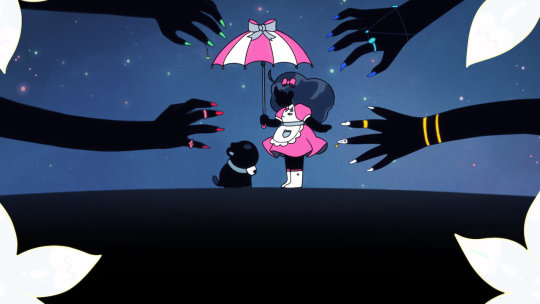#save afghanistan from taliban
Explore tagged Tumblr posts
Text
I'm so baffled that people genuinely think Israel is the biggest threat to the middle east bc Israel has never instigated a war (save ONE) they've always been attacked first.
AND did we just forget about the oppressive radical Jihad that kills all non muslims/apostates/ethnic minority groups?? And ALSO many Arab Muslims? And that fuels terrorism. The people of Afghanistan, Yemen, Saudi Arabia, Iran, and all these countries deserve better from their governments and freedom from terrorists groups. Are the Taliban the 'resistance' when they ban women from speaking? God, if the Taliban bombed Israel the antizionists would be like "maybe the Taliban is based" "actually the people of Afghanistan should fear the IDF more than the Taliban" "the Taliban represents the people's resistance actually"
#israel#palestine#gaza#antisemitism#free palestine#gaza strip#middle east#Lebanon#Hezbollah#hamas#Afghanistan#Taliban
31 notes
·
View notes
Text
(Part 1) Underrated Recommendations for Film & TV
1. Wolfwalkers (Film, 2020)

Wolfwalkers follows the story of Robyn Goodfellowe, a young apprentice hunter who arrives in Ireland with her father during a time of superstition and magic to wipe out the last wolf pack. While exploring the forbidden lands outside the city walls, Robyn befriends a free-spirited girl, Mebh, a member of a mysterious tribe rumored to have the ability to turn into wolves by night. As they search for Mebh's missing mother, Robyn uncovers a secret that draws her further into the enchanted world of the Wolfwalkers and risks turning into the very thing her father is tasked to destroy.
2. Reservation Dogs (TV, 2021)

Reservation Dogs follows the exploits of four Indigenous teenagers in rural Oklahoma who steal, rob, and save in order to get to the exotic, mysterious, and faraway land of California. To succeed, they will have to save enough money, outmaneuver the methheads at the junkyard on the edge of town, and survive a turf war against a much tougher rival gang.
3. The Breadwinner (Film, 2017)

Parvana is an 11-year-old girl who lives under Taliban rule in Afghanistan in 2001. After the wrongful arrest of her father, Parvana cuts off her hair and dresses like a boy to support her family. Working alongside a friend, she soon discovers a new world of freedom and danger. Drawing strength from the fantastical stories she invents, Parvana embarks on an epic quest to find her father and reunite her family.
4. Carol & the End of the World (TV, 2023)

With a mysterious planet hurtling towards Earth, extinction is imminent for the people of the world. While most feel liberated to pursue their wildest dreams, one quiet and awkward woman, Carol, stands alone—lost among the hedonistic masses.
5. Infinity Train (TV, 2019)

The series is set on a gigantic, mysterious and seemingly endless train traveling through a barren landscape, whose cars contain a variety of bizarre, fantastical, and impossible environments. Passengers on the train proceed from car to car by completing challenges which help them resolve their psychological trauma and emotional issues. Every season of Infinity Train (referred to as a "Book", each with its own separate subtitle) follows its own storyline and set of characters, although some characters appear across multiple seasons.
6. Moral Orel (TV, 2005)

The series follows the titular Orel Puppington, a young, happy-go-lucky and naïve Protestant who showcases his commitment to God, while dealing with the cynicism of his abusive and alcoholic father, his lethargic mother, and the devoutly Protestant town of Moralton in which he resides.
7. Bee and PuppyCat (TV, 2013)

The series revolves around Bee, an unemployed woman in her early twenties, who encounters a mysterious creature named PuppyCat. She adopts this apparent cat-dog hybrid, and together, they go on a series of temporary jobs to pay off her monthly rent. These bizarre jobs take the duo across strange worlds out in space.
8. Tuca & Bertie (TV, 2019)

This animated comedy series explores the friendship between two 30-year-old bird women who live in the same apartment building. The buddy comedy features cocky, carefree toucan Tuca and anxious, daydreaming songbird Bertie as they live their lives in the metropolis of Bird Town.
9. Wander Over Yonder (TV, 2013)

The series follows Wander, a nomadic, helpful, and overly-optimistic intergalactic traveler and his best friend and steed, Sylvia the Zbornak, as they travel from planet to planet helping people to have fun, play, and live free, despite the continuing encroachment of Lord Hater, one of the most powerful villains in the galaxy, and his army of Watchdogs.
10. The Midnight Gospel (TV, 2020)

The Midnight Gospel revolves around a spacecaster named Clancy Gilroy, who lives on the Chromatic Ribbon, a membranous, tape-like planet situated in the middle of a colorful void where simulation farmers use powerful bio-organic computers to simulate a variety of universes from which they harvest natural resources and new technology. Each episode revolves around Clancy's travels through planets within the simulator, with the beings inhabiting these worlds as the guests he interviews for his spacecast. These interviews are based on actual interviews, with real audio sampled from Trussell's podcast, The Duncan Trussell Family Hour.
#tv shows#tv series#tv#film#films#movies#movie review#movie#movie stills#review#reviews#tv review#film review#film recommendations#film reccs#movie recommendation#movie rec list#movie recc#tv recommendations#tv reccs#tv show#recommendations#rec list#underated#underated movies#wolfwalkers#reservation dogs#carol and the end of the world#infinity train#animation
37 notes
·
View notes
Text
Isn't it fascinating to see liberals blaming everyone for feeling in four years what Palestinians have felt for 70 years?
Well listen, karma is a bitch, you treated genocide as a "minor issue", now at least you will experience it for yourself, don't blame the leftists, blame yourself, because the fault was your ignorance and the desire to maintain your privilege at the expense of others
This will last four years, what the Palestinians have been going through has lasted almost 80 years, ignorance is bliss but reality will hit you harder when it comes to you
It's not the leftists' fault, you're just dealing with the consequences of your ignorance
Recall that the US did not stop the holocaust when it started, and only two years after the Third Reich attacked Poland, think of all the people who could have been saved but were not because of America's ignorance, think of the Palestinians, Lebanese, Syrians and Yemenis what could have been saved, but the democratic party preferred to help Israel all year round
Think of the women of Afghanistan who wouldn't have had to deal with the Taliban now if Biden had stopped Trump's bill (instead of postponing it a year later) related to the withdrawal of US troops from Afghanistan
You ignored it because it was the blue party, now your love for them has bitten you in the ass and you're going to face the shit these people have been dealing with for much longer than you want to think
#free palestine#israel is a terrorist state#palestine#israel#gaza#free gaza#palestina#kamala harris#donald trump#trump#blue maga#holocoust#usa election#usa politics#usa is a terrorist state#us politics#us elections#free lebanon#free yemen#afganistan#free syria#joe biden
19 notes
·
View notes
Text
Thoughts?
From the other Spectator.
Why the Foreign Office shouldn’t save Brits abroad
But the British government should spend not a single pound, not a single official’s time, on rescuing Brits like this abroad. Those who elected to stay on after the fall of the legitimate, internationally-recognised Afghan government, despite knowing that the two powers left in the country were the Taliban and Isis, surely knew the risks of staying put. It’s not the state’s job to save them from the clutches of the Taliban.
Smart Steve and I had this very conversation last Saturday. As long as the new kids in town are shaking things up, let them make it clear to Americans that when they venture to places the State Department deems dangerous, they’re on their own.
There is no reason to put more Americans at risk because some dimwits decided to go to hell on earth to help people. And yes, I include missionaries of all stripes.
I’m in favor of good works; helping others is an essential part of citizenship and adulthood. And, goodness knows, every time I scroll through Tumblr yet another group is being victimized right here at home. Mass and Cass in Boston is a civic disaster. Burnsville, N.C. still needs strong backs and good hearts. Seen K&A in Philly lately? Our prisons are crowded with young men who cannot read. Your child’s best friend needs a stable family to visit for Saturday dinner that lasts a semester.
But, do your good work here. You don't need to go Afghanistan to help someone. Stay here. Help someone here and shut your mouth.
Just do the work.
11 notes
·
View notes
Text
"On March 31, 2025, the Pakistani government is set for a mass deportation of Afghan people back to Afghanistan. Amongst them are 60 Afghan women, women rights defenders and their families, which face imprisonment, torture, and execution under the Taliban regime.These women fought for their freedom. Now, they are running for their lives. If we don’t act, they will be deported into the hands of their oppressors. Sign and share now!These women are human rights activists, defenders of women’s rights, and the future leaders of Afghanistan. They are determined to rebuild their country once Afghanistan is free from the Taliban. But if we do not act now, there will be no future for them.
"Zahra was a teacher and a women’s rights activist. In Kabul, she organized protests under the slogan “Bread, Work, and Freedom.” The Taliban did not tolerate dissent and identified her as a threat. During a protest, she was arrested, tortured, and brutally beaten, suffering severe spinal and eye injuries. After her release, she received repeated threats, her home was monitored, and her family was pressured to silence her. The Taliban has spread her name and photo at border checkpoints, ensuring she will be captured if deported."
PLEASE SHARE THIS
#Save Afghan women#let afghan girls learn#Let Afghan women exist#Bread work freedom#Women life freedom#Never forget Afghan women
7 notes
·
View notes
Text

(Art by @createdbyz_)
Thanks to the petition below and donations so far 64 Afghan women's rights activists and their families are being granted visas to Brazil!
But there are many many more people at risk. Please sign this petition (and donate if possible) and help these women fight for a Taliban-free Afghanistan. A future where the women of Afghanistan can experience freedom and live without fear.
TW for petition- abuse, sexual assault, rape, torture, murder
The amazing artist who made this piece is Createdbyzole on Instagram, they don't seem to be active so if anyone knows any alternative accounts please let me know and I will update this post!
#afghanistan#free afghan women#free afghanistan#afghan#Afghan women#basic human rights#women's rights#feminism#equality#freedom#petition#i stand with afghan women#createdbyz_#createdbyzole#please sign this petition
2 notes
·
View notes
Text
It’s October 7th. I know I post a lot of pro Palestinian stuff and am vocally anti Zionist, but it seems wrong not to say something. A year ago, Hamas attacked Israel and killed over 1200 people and took 251 more hostage. 97 are still in captivity, with the rest freed or rescued. Of the 97 remaining, 33 are thought to be dead. That’s horrible. It’s awful. Hamas’s attack has rightfully been called barbaric.
So has Israel’s response. 41,788 people in Gaza dead, including over 16,000 children, and other figures report most of that 41,788 are civilian women (I never see figures on civilian men. Which eerily echoes Obama saying “enemy combatants” in my mind). Over 60% of Gaza is just ash now. And Gaza isn’t that big; only 139 mi^2, and crammed full of over 590,000 people back in 2017 (Israel, by comparison, is made up of 9,900,000 people, though I think that includes the 21.1% of arabs). That’s a far cry from proportionate, and I fail to see how bombing civilians and reducing schools and hospitals to ash saves hostages. Unless the argument is that it will scare Hamas into surrendering, in which case at best that’s total war and at worst state sponsored terrorism.
Now Israel is engaged in escalations with Lebanon and Iran. I don’t pretend to know any of the history there, so all I’ll say on that matter is that it’s scary. Very scary. I imagine it’s scary for Israelis, who don’t know when their families will be saved and see enemies on all sides. I imagine it’s terrifying for Palestinians, who have to watch their entire community be destroyed because a terrorist organization claiming to represent them committed an act of terrorism.
The whole situation is, as I alluded earlier, disturbingly similar to the USA’s war on terror. On 9/11 Al Qaeda killed 2,977 people. In response, the United States and her allies invaded Afghanistan in 2001, and we didn’t leave until 2021. Fucking 20 years. And the Taliban still won. 46,319 civilians were killed, and the US committed innumerable war crimes. Plus, the US killed Bin Laden in 2011, so we went on for another fucking decade after we got the guy. And that’s not to mention the Iraq War (2003-2011) where anywhere from 100,000 to 1,000,000 people died, because Bush lied about WMDs and Saddam Hussein.
Keep in mind, in Afghanistan alone the US killed just a few thousand more civilians than Israel has in 20 years; Israel has had just 1 year. And remember that this conflict didn’t start in 2023; it started in the 1940s when Israel became a state*
9/11 and October 7th were both awful tragedies committed by terrorist organizations. Israel and the United States are also both colonialist states that are more than happy to bomb the shit out of civilians under the justification of counter terrorism. October 7th was awful. The Hostages should be brought home and Hamas has to be stopped. But don’t let anyone fool you today that the Israeli government is somehow in the right because of that. We’ve seen similar countries pull the same shit for the last twenty years. Don’t be fooled.
The war has to stop. Not because I love islam (I don’t) or I hate jews (I don’t), but because civilians shouldn’t fucking suffer like that. Hostages have to be returned, bombs have to stop, and someone more fucking capable than me or Netanyahu or Yahya Sinwar or fucking Biden needs to get a god damn peace agreement through that will actually last.
A lot of my numbers on the current war in Gaza are from this very good article ny NBC. My figures on the US war on terror are from Wikipedia.
*Yeah I know a Zionist Israel only was able to come about because of WWII and the holocaust, and yes I know that only happened because of WWI and antisemitism, and that only happened because of centuries of antisemitism in Europe because of Christianity and the Roman Empire, and yes I know that’s an oversimplification and the chain of events goes back further. My point is that this whole history is a bloody nightmare of a political knot, but that even then the mass death of 16,000 children is fucking inexcusable, even when in response to the also inexcusable capture of 251 people. This isn’t a matter of who’s in the wrong, it’s a matter of degree of wrongness.
5 notes
·
View notes
Text
Predicting the collapse of a country is like reading between the lines of history, economics, and politics. Some nations, however, are walking on thin ice, where even a small additional burden could lead to their downfall. In this article, we’ll explore 10 countries facing severe risks that could put them on the brink of collapse by 2027. Some of these might surprise you.
1. Lebanon: A country where nothing works anymore Once hailed as the “Switzerland of the Middle East,” Lebanon is now in absolute economic chaos. Hyperinflation, currency collapse, and political corruption have brought the state to its knees. Ordinary citizens struggle to secure basic needs like food and fuel. Can Lebanon still be saved, or will it follow the fate of nations that fragmented into smaller entities?
2. Afghanistan: Taliban isolation and hunger Since the Taliban regained power, Afghanistan has plunged into international isolation. Its economy is collapsing, people are starving, and humanitarian organizations cannot meet the overwhelming needs. If the situation doesn’t improve, the state risks fragmentation into territories controlled by armed factions.
3. Haiti: From freedom to a nation ruled by gangs Haiti has been grappling with a crisis for years. With no functioning government, armed gangs dominate cities. Add to that natural disasters like earthquakes and hurricanes, and you have a recipe for complete collapse. Can Haiti ever rise again?
4. Sudan: A nation in perpetual conflict Sudan’s civil war between the army and militias is spiraling into catastrophe. Thousands are dead, millions are displaced, and famine looms large. If the conflict continues, Sudan could disintegrate into smaller regions controlled by local warlords.
5. Venezuela: From riches to rags Home to some of the world’s largest oil reserves, Venezuela has been in freefall for years. Hyperinflation, food shortages, and mass emigration have devastated the nation. Could Nicolás Maduro’s regime fall, or will Venezuela remain stuck in this “frozen collapse” for decades?
6. Myanmar: A coup that crushed hope The 2021 military coup plunged Myanmar into chaos. Protests, uprisings, and ethnic conflicts have become the norm. If the military junta doesn’t relinquish power, the country risks breaking into warring regions.
7. Yemen: A nation where survival is a battle Yemen is the epitome of disaster. Its civil war between Houthi rebels and the internationally recognized government has raged for years. Millions suffer from hunger and disease. If the conflict isn’t resolved, Yemen could vanish as a functioning state altogether.
8. North Korea: Behind the curtain of isolation Kim Jong Un’s regime appears solid, but what if it isn’t? Economic sanctions, famine, and a possible power struggle after his death could lead to an unexpected collapse. If that happens, the chaos could be unimaginable.
9. Pakistan: Battling economic and political storms Pakistan is grappling with an economic crisis deepened by debts and political instability. Extremism, corruption, and worsening relations with neighbors could weaken the country to the point of losing control over its regions.
10. Somalia: A collapse that never ended Somalia has been a failed state for decades. The terrorist group Al-Shabaab still controls large swathes of territory, while the central government remains weak. Without minimal international support, total disintegration seems inevitable.
Why Do Countries Most Of Time Collapse? Normally, the collapse of a state is always the result of a combination of factors:
Economic instability: Hyperinflation, overwhelming debts, or resource shortages.
Political corruption: Weak governments unable to address crises.
Civil conflicts: Wars, ethnic tensions, or regional uprisings.
Climate change: Worsening conditions, natural disasters, and resource depletion.
International isolation: Sanctions or loss of foreign support.
2 notes
·
View notes
Text

I will make a full review of The Swallows of Kabul book and movie (mainly book as I watched the movie with SPANISH subtitles so my understanding of the movie was mainly backed up by my subpar Spanish and prior context/knowledge from the book, but I'll still review the movie) BUT for now lemme just talk about THEM in the MOVIE:
I like the movie ending a tad bit more; it gives us hope for Zunaira and for Musarrat and Atiq it gives us them dying side by side, as a couple should. In the movie, Atiq is more sympathetic/I don't hate him like I do in the book. In the movie, tbh, it seems like Atiq and Musarrat had a ok (maybe even good, I'll get to that later) marriage that struggled due to the Taliban rule and deteriorating state of Afghanistan due to war. Atiq isn't as mean/callous to Mussarat in the movie as he is in the book nor is he abusive at all in the movie. Plus, his feelings for Zunaira are less intense and romantic than the book, so all together things seem more grounded and I can better understand Atiq and more so Mussarat's love for him.
The reason why I think the movie made the change of having Atiq and Mussarat be implied to have had a happy marriage is cus of this scene:

This didn't exist in the book (at the very least not my English translated copy. I did get a PDF version of it, I am thinking of buying a real life copy to see if there are any differences.) Mussarat is looking at these photos and it seems like, unlike the book, in the movie Atiq and Mussarat were HAPPY. Maybe even in love. In the book, because the author doesn't focus much on their marriage before and Atiq's general bitter and indifferent attitude to Musarrat and his growing anger and mistreatment of her, it seems like even from the start Atiq has been indifferent to Mussarat.
But in the movie, all of the scenes where Atiq mistreats Musarrat or obsesses over Zunaira are gone. It's more so presented like it's a love that's withered away but comes back in a quiet, all too late realization when Musarrat sacrifices herself and switches places with Zunaira just so Atiq can save Zunaira, which would make him happy after so long of being depressed. I love the framing of everything, how Atiq keeps staring at Musarrat after avoiding her gaze for so long.
ALSO in the book Atiq dies trying to find Zunaira after she flees by taking off women's burqas. But in the movie, Qasim figures out that Zunaira was switched out and kills Atiq on the spot; again, the movie is shifting the story to be about Atiq and Musarrat's marriage and making us more sympathetic to Atiq. Atiq dies NOT looking for Zunaira but facing his wife who loved him till the very end, he just didn't see it until it was too late and his corpse is forced to see.
In terms of ending and framing this marriage, I personally like the movie WAY more. I feel like the movie does more justice to Musarrat's character, let's us feel more sympathetic to Atiq, and is in general more hopeful than the book.
I have half a mind to write a good ending for the movie where this good, happy romance that Mussarat and Atiq are lowkey implied to have at the very start of their marriage actually works out in the end cus like. I'm actually rooting for Atiq in the movie! I hate him in the book. In every version I want Musarrat happy. So like, if I ever post a rewrite of the MOVIE (!! Movie cus book Atiq can suffer) don't be surprised, I'm doing it like 30% for Atiq and 70% for Musarrat. I really do mean it when I say you come out of this story (movie or book) loving the women characters the most
#bigsischats#bigsisyaps#movie review#the swallows of kabul#the swallows of kabul by yasmina khandra#yasmina khandra#the swallows of kabul movie#the swallows of kabul (2019)
4 notes
·
View notes
Text
Jess Watches // Sat 25 Jan // Day 473 & Sun 26 Jan // Day 474 Synopses & Favourite Scenes & Poll
Love Next Door (with L) Ep 15 Bravo my Life
Seung-hyo and Seok-ryu's secret ignites a firestorm between their mothers, pushing family tensions to the breaking point.
A return to the chaos of the first episode, bringing everything full circle. The actors were clearly having lots of fun. Are vegetable fights common among Korean mums lol. 🥬
The Old Man (with mum) 2x01 VIII
Now in Afghanistan, Dan Chase and Harold Harper have to evade the Taliban in order to save Emily.
Emily has 3 dads. There is a high hope that one of them will help save her. But I fear their decades long feud might lead to her demise. 😭
XO, Kitty 2x05 Kissing Cousins & 2x06 Kiss and Make Up
As suspicions about Stella grow, Kitty chases a lead to long-lost relatives as Yuri tries to make amends with Juliana. Another scandal rocks the school. / As Min Ho and Yuri do damage control to fix fractured relationships, a friendly face from home pays Kitty a visit and brings life-changing information.
I've just discovereded why I'm not as into Kitty/Yuri as the narrative leads me to be. There is a 10 year age gap betwwen actors, which when playing teenagers is a huge red flag for me. *coughs* PLL, NHIE *coughs* I do hope they keep them friends though. Kitty needs all the support she can get. Also, Hi Peter. I too would like sparkly pens and stickers. 🦄
2 notes
·
View notes
Note
I'm personally not sure on what the best course of action is either.
I think that getting the information about what's led up to the current situation and the new laws, out to the public is important. It's not being reported on by my country's news (that I've seen), I found out about the change of laws online.
I'm not sure how much help it is, but writing to politicians to let them know that this is a grave concern of their country's citizens to see these women being erased from view and that we as citizens would like to see government work together with other governments to provide aid, protection, and liberation to the women of Afghanistan from the Taliban's chokehold.
I'm not sure how much else can be done as individuals. I would love any advice anyone else has about this issue myself as well.
If anyone has any links to organizations working to aid the women of Afghanistan, please share these so that those who are able to donate, can.
the US army was in Afghanistan for 20 years and spent $2 trillion, and when they left, everything went to what it was like before 2001.
the US is not going back in to save women. i don't see a diplomatic option. am i missing something?
5 notes
·
View notes
Text
i watched hyena road which i'd been lowkey kinda uhming and ahing about because who needs another movie about western soldiers abroad feeling bad about War
and it wasn't so bad honestly. it's got that something which most army movies like this do, of the noble west coming in to..... do something...... but it veers more on the side of "and we're trying to help" propaganda, than the "and those savages over there" propaganda
within that first realm it actually has some quite interesting Afghani characters with things to do and a sense of culture and meaning and history (i know, i know, low bar, and yet here we are)
its real tension in many ways feels to me like paul gross really wanted to make something about Afghanistan with the acknowledgement that soldiers coming in didn't know the country and the history and the people, but couldn't quite square it with the "so what were the circumstances that led to those soldiers being there in the first place" question while focusing mainly on soldiers
that almost-context lingers over the movie, and then it has some melodramatic stuff going on between two characters, but it does feel more human than most war films ive seen, probably because it's limited its scope to a small region and moment in time and so Afghani characters have ties to where they live, vs those vaguer... "and here we are... somewhere.... in a vast desert...." settings in films like these
i really liked the very final scene a lot, showing a family honouring their grandfather who fought the Soviets and now fought the Taliban for them and saved his granddaughters and nobly died and was genuinely such a cool character, but you're kinda like. oh this is the interesting story, this right here. not all the other army stuff going on, that's background, this is the humanity
and i feel like paul gross kinda knew that, considering it ends with this moment, and a voice-over from him speaking to a future when Afghanistan is a safe place to be once again (using a quote from the Afghani people no-less, according to the movie), but you're like... so what was all that army stuff about?
(propaganda, i know. i mean i dont know enough about specifically the Canadian army in Afghanistan, but i know about a fair few others and I doubt Canada is above that, knowing what i know about Canada generally)
but yeah. it was a war movie. but it had something interesting inside of it, and it had a humanity, which i think is often lacking in military films of any kind (to dehumanise a country is to reflect dehumanisation back onto oneself after all)
also i was told that the guy playing said badass character (known only as "The Ghost" or Muhammad, when pressed for A Name) was flown to the opening of the film because he wasn't a pro actor and he and PG just got on really well and he wanted to make sure he watched his own work. so that's telling of a good filming environment i'd say
gotta watch an Afghani production to balance it out
#also listen i AM shallow. paul gross was hot in it#im watching movies#im watching paul gross movies#im watching hyena road
2 notes
·
View notes
Text
CNN's Jake Tapper at center of defamation lawsuit as he prepares to host presidential debate
CNN presidential debate moderator Jake Tapper’s show is at the center of a defamation suit brought by a consulting company which alleges that the network and one of its reporters lied about the company’s work.
The network’s defense: CNN did not intend to harm and its language was “opinion or ambiguous.”
Tapper is set to co-host the first presidential debate next Thursday which is being hosted by his network. The host has come under scrutiny from former President Donald Trump, who is set to participate in the debate, for his partiality— calling him “Fake [Jake] Tapper.”
But, as the well-known CNN personality gears up for that debate he also finds himself in the middle of a lawsuit against his employer by security consulting firm Nemex Enterprises and its owner Zachary Taylor, who worked to help evacuate Afghanis following the chaotic Taliban takeover of that country.
"Jake Tapper started his career working for a Democrat politician and he has never been able to shake the habit. Trying to run cover for Biden's disastrous pullout from Afghanistan, he and his CNN show slimed a hero who saved the lives of those Biden put in jeopardy. Now CNN is facing a billion dollar defamation suit at the same time Tapper will be moderating the presidential debate featuring the politician he lied for. Unreal," Dan Schneider, Vice President at conservative media watchdog Media Research Center, told Just the News in a statement. His organization reported that CNN has since deleted the TV segment under scrutiny from its website.
4 notes
·
View notes
Text
The Senate has passed a bill intended to unblock Canadian aid in Afghanistan without amendment. The Criminal Code changes allow development workers to apply for exemptions from terrorism laws, which currently criminalize paying taxes to the ruling Taliban because it is designated as a terrorist group. Amendments from the Conservatives and NDP in the House of Commons also added a blanket exemption for humanitarian workers who are providing life-saving aid in response to emergencies. The passage of the bill by both chambers of Parliament comes more than a year after many of Canada’s allies issued exemptions for aid workers in their own terrorism laws. Some senators had expressed fears about how bureaucrats might enforce the bill, but the Senate gave unanimous consent to pass multiple stages of the bill all at once, ensuring it will become law before a scheduled summer break. [...]
Continue Reading.
Tagging: @politicsofcanada
32 notes
·
View notes
Text
You protect rights you surrender
Dakota Meyer is a Medal of Honor recipient who earned the medal in 2009 for saving his fellow warriors from Taliban fire in Afghanistan. President Obama presented the medal to the Marine Corps sergeant in a White House ceremony. Meyer then left the Marine Corps for 15 years. Now, though, he is returning to the Corps as a reservist. He had become highly critical of President Biden’s decision to…
0 notes